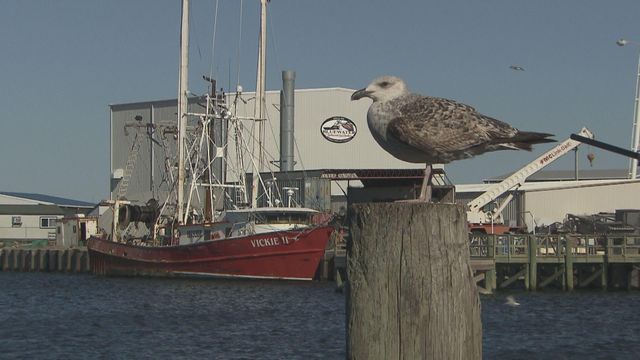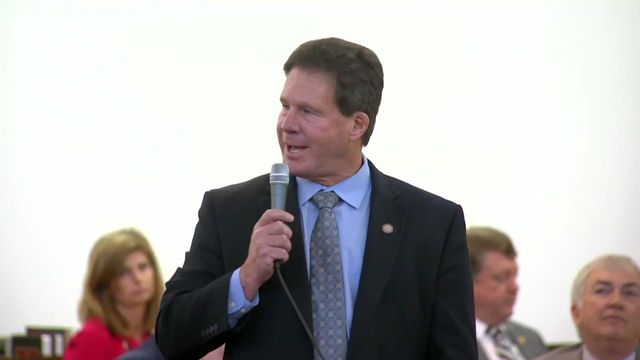Young fish might soon be the ones that get away from NC fishermen
Fishermen won't be able to catch certain species of fish in North Carolina unless they meet minimum size standards set by state regulators under a proposal that cleared the House on Thursday.
Posted — UpdatedHouse Bill 483, dubbed "Let Them Spawn," directs the state Marine Fisheries Commission to set minimum sizes for spot, Atlantic croaker, kingfish, striped mullet, southern flounder and bluefish. The sizes will be based on biological data to ensure that 75 percent of juvenile fish in each species will be able to reach maturity and spawn at least once.
Sponsor Rep. Larry Yarborough, R-Person, said harvests of finfish off the North Carolina coast have been declining in recent years because commercial fishing is taking too many juvenile fish before they've had a chance to reproduce, which he said isn't sustainable in the long run.
States up and down the East Coast are doing a much better job at managing their fisheries than North Carolina, Yarborough said, where he said policy has been plagued by politics for too many years.
"Let Them Spawn is not going to be the end of bait fish, nor is it going to be the end of commercial fishermen any more than the decline of these six species has resulted in the end of commercial fishing," he told House members Thursday.
Several coastal lawmakers argued that commercial fishing would suffer if size limits were put in place.
"You can always come to Calabash and have Japanese shrimp and Brazilian flounder," said Rep. Frank Iler, R-Brunswick.
Rep. Keith Kidwell, R-Beaufort, said foreign trade deals and state regulations are more responsible for declining harvests than a lack of fish. A fish processing operation that would bring 40 jobs to the tiny town of Belhaven could be in jeopardy if size limits are adopted, he added.
Rep. Pricey Harrison, D-Guilford, said the bill is simply bad policy, using a single approach for various species without much input from people who are either knowledgeable about the issue or will be affected by a change.
Size limits would make the use of gill nets difficult, if not impossible. Rep. Michael Speciale, R-Craven, said that's the aim of the proposal – a plot by recreational fishermen to put their commercial counterparts out of business.
Yarborough noted commercial fishermen weren't packing the House gallery this week for debate on the bill, unlike debates on previous measures related to fishing regulations.
"I've had several commercial fishermen reach out to me that they get this [and] this bill makes sense," he said. "They understand there's a problem."
Related Topics
• Credits
Copyright 2024 by Capitol Broadcasting Company. All rights reserved. This material may not be published, broadcast, rewritten or redistributed.






